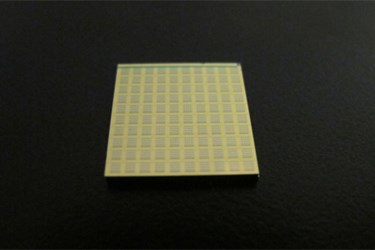Remote-Controlled Contraceptive Device To Provide 16 Years Of Birth Control
By Joel Lindsey

MicroCHIPS, a medical device company based in Lexington, Massachusetts, is developing a new implantable, electronically triggered contraceptive that could be controlled remotely to provide women with up to 16 years’ worth of birth control.
“The idea of using a thin membrane like an electric fuse was the most challenging and the most creative problem we had to solve,” MicroCHIPS president Robert Farra said in a news article published recently by the MIT Technology Review.
According to the article, the new device would measure 20 by 20 by 7 millimeters, and it is being designed for implantation beneath the skin of a woman’s buttocks, upper arm, or abdomen.
The device would be filled with 16 years’ worth of the contraceptive hormone levonorgestrel, which would be located in tiny reservoirs and held in place beneath a specialized seal made of titanium and platinum. When an electric current passes through the seal, it would temporarily melt, releasing a small dose of the hormone into the wearer’s blood stream.
The key to the new contraceptive implant would be its ability to be triggered and controlled electronically. Because electrical currents would control the release of the hormone, the device could be controlled remotely using a simple remote control, according to the company. Doctors would be able to adjust hormone dosages, and the birth control could be turned off and back on again according to the wearer’s needs.
“To conceive, women turn off the implant with a remote control; another click of the remote restarts it,” said the article. “After 16 years, it could be removed. Doctors could also adjust dosages remotely. Currently, no hormonal birth control lasts over five years.”
Researchers and developers at MicroCHIPS who are working on the device plan to move it into pre-clinical trials in the U.S. beginning next year. The company said it hopes to have the device on the market sometime before 2018.
There are still major challenges to overcome before the company will be able to file an application with the FDA — one of which includes encrypting the implant to ensure the privacy and security of the wearer.
MicroCHIPS’ new contraceptive could become part of an increasingly active field within the medical device industry looking to use electrical signals to control implanted devices non-invasively and remotely. Earlier this year, for example, a team of researchers at Stanford made headlines when it revealed its attempts to design a device that could safely and remotely transmit energy to medical devices implanted deep inside a human body.
